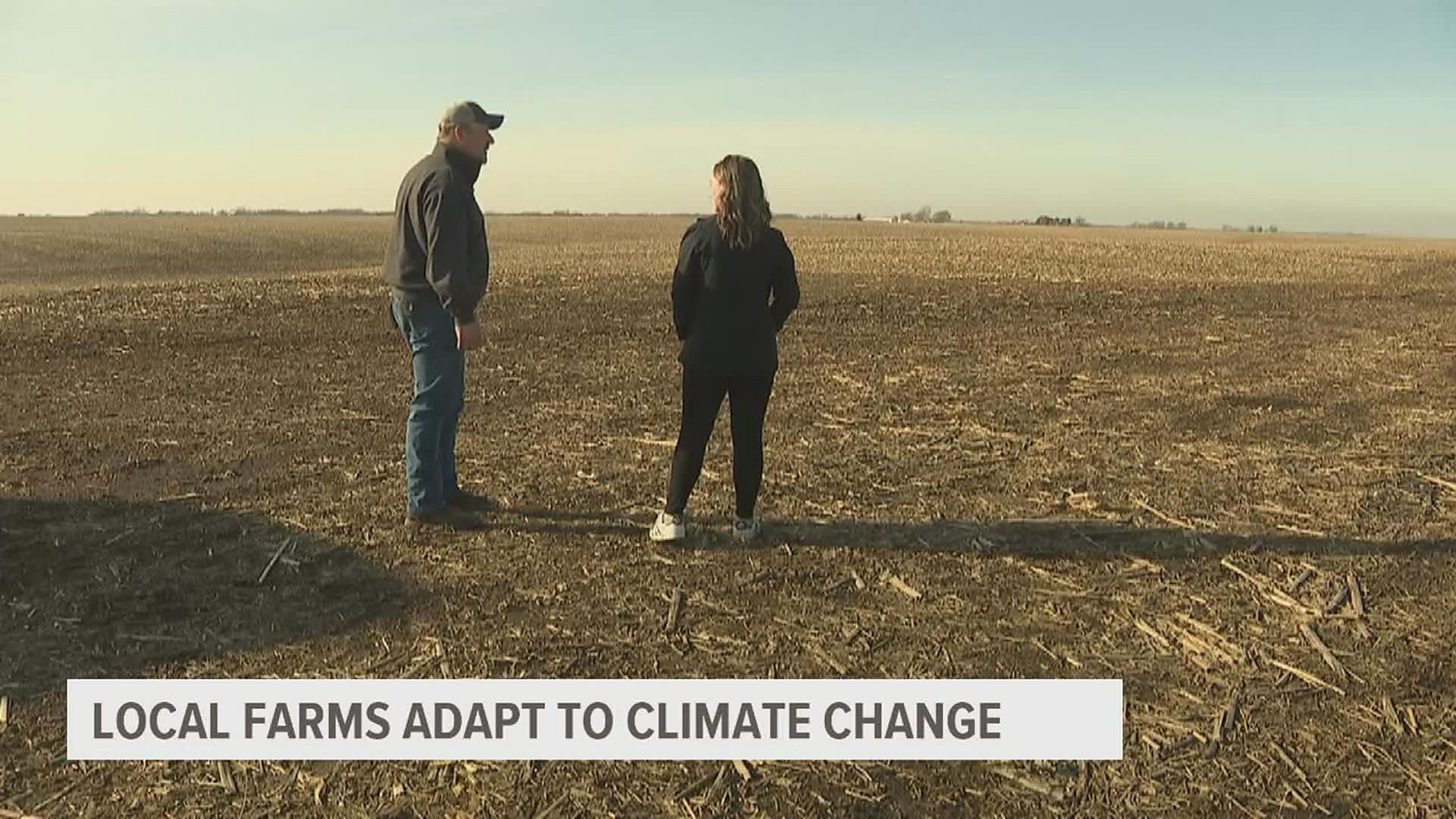MOLINE, Ill. — Summer is here in the Quad Cities. We are currently under a heat advisory that expires tomorrow, but even after it's over, we will be right back with temperatures in the upper 90s to triple digits. These types of temperatures don't just have negative effects on humans and animals, but also our food source: crops.
High temperatures can cause a decrease in photosynthesis, pollen production and pollen viability, seed abortion, and lower grain weight and number, as well as a degenerative process called leaf senescence.
They can also affect farmers indirectly by causing a loss of potential production by disturbing the flow of goods and services, lost production capacities, and increased cost of production. An example of this would be the health risk that agriculture workers face during heatwaves from working outside such as heat exhaustion, heat stroke, heat cramps, and more.
Heat waves can affect the environment around crops as well. Heatwaves can result in droughts and wildfires, each of which has a negative impact on crops. Heat waves take up a lot of soil moisture via evaporation, leaving little to no moisture for crops to use. It doesn’t help that when heatwaves occur, there is high demand for water in municipal sectors, leaving little water use for crops. Not only can these events affect crops physically, but they can also affect them finically by raising insurance for farms.
Hea waves can affect crops during the nighttime hours as well. During heat waves, heat continues throughout the nighttime hours, which can have a negative effect on crops. Some crops require cool night temperatures, so having highs in the 80s to 90s at night will not allow them to grow.

